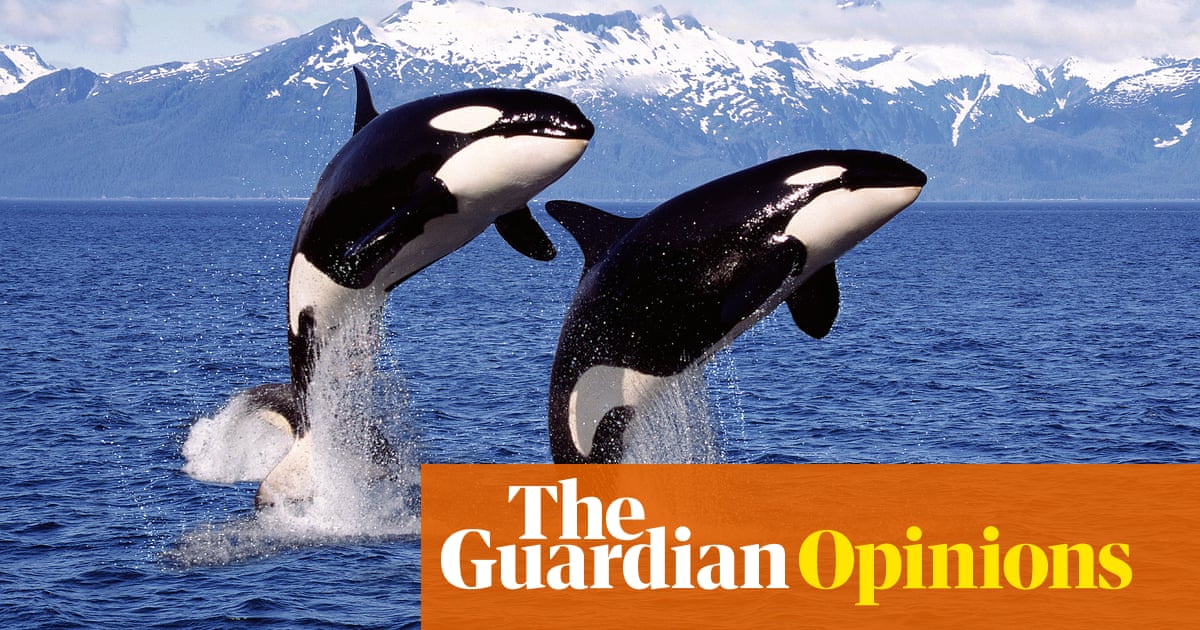I’ve thought for a while that it would be nice to be an orca. Not because I hate boats and theysink them(though I get it – the briny depths are none of our human business). What actually appeals is the idea of being charismatic megafauna – I love that phrase – and also important as a post-menopausal female. Orcas are one of very few species that go through menopause, living for decades after their reproductive years. These older matriarchs remain an integral part of the community, improving pod survival rates thanks to being “repositories of ecological knowledge”, caring for young and even,research suggests, keeping their giant adult sons safe from being attacked. The fact that they’re fashion-conscious is a bonus: the 80s orca trend for wearingjaunty salmon fascinatorswas revived, intriguingly, in some pods last December; other orcas have been observeddraping themselves artistically in kelp.
Butnew researchis giving me pause. Now orcas in the Salish Sea off the coast of Washington state have been filmed picking kelp stalks and “massaging” each other with them. In sightings of this behaviour, reported and dubbed “allokelping” by theCenter for Whale Research, “the two whales then manoeuvre to keep the kelp between them while rolling it across their bodies … During contact, whales roll and twist their bodies, often adopting an exaggerated S-shaped posture.”
Whether this weirdly acrobatic seaweed exfoliation is more aboutskincare or social bondingis unclear, but it’s fascinating. It’s also, however, off-putting. There’s a nauseating “mud-daubed couples’ cute spa selfie” or “wearing matching thong swimwear to give each other a scrub at the mixed hammam session” vibe to this kelp massage business. It seems out of character for my orca heroines: this is the kind of performative sensuality I can imagine dolphins indulging in (don’t get me started on dolphins).
I’m choosing, however, to have faith. Hopefully “allokelping” will be revealed to be a creative part of a greater orca plan – perhaps to destroy humanity by giving us a catastrophic inter-species ick? I can’t become one, but I remain, as ever, ready to accept my orca overladies.
Emma Beddington is a Guardian columnist
